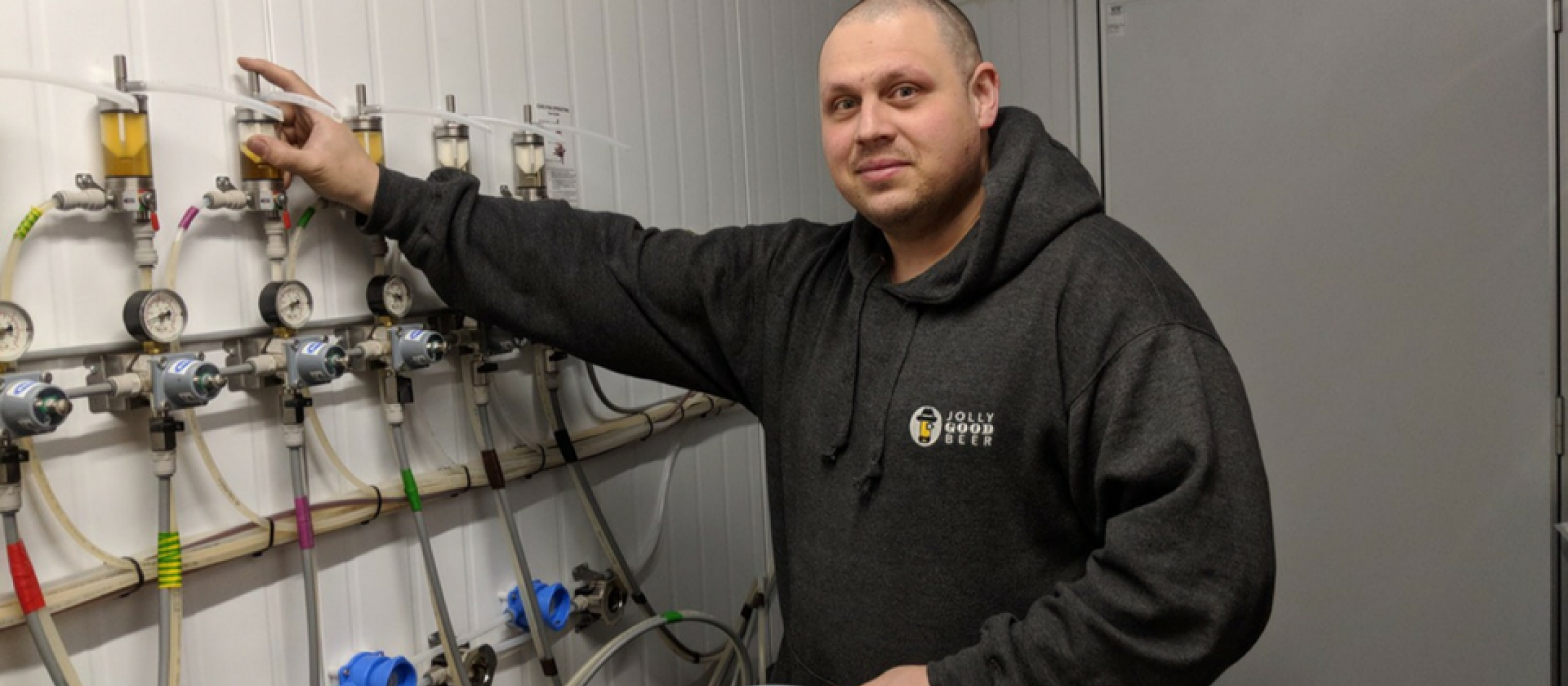Submission Deadline
28 February 2026
Judging
Date
23 March 2026
Winners Announcement
22 April 2026
28 February 2026
23 March 2026
22 April 2026

Taprooms and brewery-run bars are craft beer’s biggest growth business at the moment. In London alone, Gipsy Hill, Cloudwater, Northern Monk, Hop Stuff and more have recently opened one (or more), or have plans to do so. For those that can afford it, it makes sense: it’s a direct and secure route from brewery to customer.
It’s also a potential banana skin, though. If the quality of beer isn’t up to snuff, there’s no-else to blame - so it’s crucial to make sure you have the correct serving equipment. Few know more about this than Yvan Seth, owner of craft beer distributors Jolly Good Beer and a strong advocate for properly kept and served beer. Here’s his thoughts on how to make sure your equipment doesn’t let you down:
Keep it simple:
“My first recommendation for all new sites is to install a "direct draw" system. This means: cold room at beer serve temperature, no flash chiller, and a cellar/cold room located directly behind the bar. Zero python lines, no lines or kegs at ambient temperature.
“The cellar-side is inside the cold-room and the taps simply on the other side of the wall with shanks through the cold room wall. This system has no more than an 8th of a pint in the lines typically, and because it is so short and simple there are less items that can go wrong.
“All aspects of the system are visible at a glance - no pipes hidden in insulation, so you can see if you have issues in lines right away. It's also trivial to replace lines, which bars at the top of the quality game do on a regular basis.”
But what about cask?
“The system is naturally incompatible with cask ale due to the cold store temperature. You can overcome this by doing cask under cooling jackets instead, which is what I installed at the Hopmaster General in Rushden. Or you can design a system where you have a split cold room, so you essentially have an insulated anteroom that is cooled by air from the keg cold room (or its own system), which is how we set up The Rusty Bucket in Eltham, London.
“Ultimately the UK model pub with a cellar buried somewhere and a bar located elsewhere necessitates the very common python setup. It's quite antiquated and far from ideal.”
Train your staff
“UK cellar and bar folk who deal with rotational lines need to understand carbonation and how to set gas pressure suitably, and how to balance that at the tap end with flow control. Almost none do, because it's never been in the interests of established keg brand big-boys for pubs to be technically informed on this. There is no recognised UK course for bar folk that teaches this stuff.
“I often say that that best thing BrewDog have done for beer in the UK is train a load of staff to Certified Cicerone level. These staff move on and take that knowledge with them.”
Cleanliness is crucial
“There are some easy things that everyone can do to make sure they’re serving better beer. Regularly cleaning your lines with chemical line-cleaner is key; a line should never go more than 7 days without cleaning - for some this means cleaning every 7 days, like clockwork, and for others cleaning between every keg works. Always use the correct measured dilution of cleaner not ‘just a splash’. And buy good reputable cleaner, not the cheapest thing you can find!
“Also: at least quarterly you should strip and properly clean fob detectors, couplers, pushfit connectors, and taps - as much as is accessible/possible. The US systems, and Direct draw especially, are better for this: no inaccessible python runs and knot of parts hidden under the bar. They make all parts of the system easy to clean. US good beer taps unscrew from their shanks for a full strip-down clean, so that is the type of tap I fit.”
Don’t copy the big boys
“Good beer is different from the big-brand industrial lagers, and you must treat it differently. The existing dispense industry in this country is designed around sterile filtered, and probably also pasteurised, macro beers. Being sat at room temp isn't going to cause these beers much problem, but it will for yours. In fact the respect for these macro beers is so low that some big distros are known to store kegs outdoors!”
The article is contributed by Will Hawkes. He is a freelance journalist specialising in beer and travel. He is an author of Craft Beer London, a guide to the city's burgeoning beer culture and a regular contributor to a host of publications including The Financial Times, The Guardian, The Washington Post and Beer Advocate.
The London Beer Competition (LBC) is an annual beer competition, organized by Beverage Trade Network, the leading online platform dedicated to connecting the global beverage industry. LBC recognizes and rewards beer brands based on quality, value for money and packaging. Know more about the competition here.
Show your beers where it matters. Get your products tasted by top buyers and experts at the London Competitions — enter now.